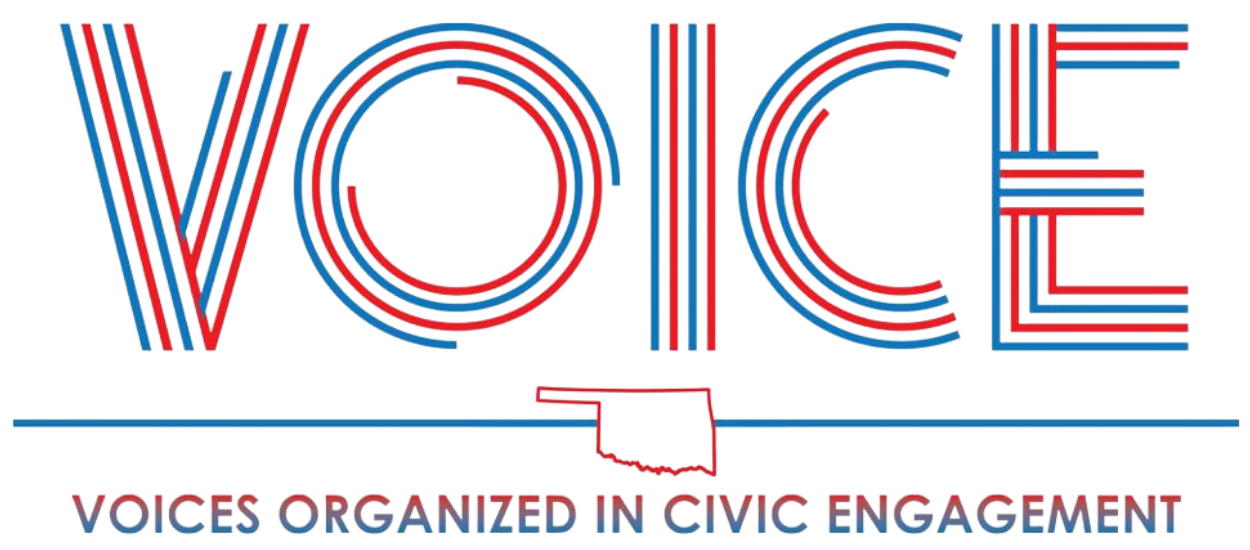
Our Impact
Sign up to receive our weekly email updates.
Download a PDF of our 2023 Report to the Community. Following are some highlights of our work from 2011 to the present.
Immigration
Legislation. One of the first issues that VOICE address in Oklahoma, even before the official founding of the organization, was immigration. After punitive legislation was passed in 2007, VOICE leaders organized meetings with legislators, attended committee members, and kept additional harsh, anti-immigrant legislation from being passed. Leaders then turned to helping immigrants feel welcomed and safe with action like training families on rights and responsibilities, and working with a variety of parishes on a program called Welcoming the Stranger. Election year political stunts had again targeted immigrant families in 2024, and VOICE leaders have worked at the legislature and elsewhere to fight for immigrant families.
Economic Justice
Utility Rates. Since 2011, VOICE has saved Oklahoma consumers - residents and businesses - over $1 billion in proposed utility rate hikes from OG&E, and won greater transparency and accountability from both regulators and those who are regulated by the Oklahoma Corporation Commission. That includes a reduction to $4.3 million in 2012 from OG&E’s original request to raise rates by $73 million, as well as a reduction to $8.9 million from OG&E’s 2015 request for an increase of $1.1 billion. We even won refunds to customers when OG&E awarded themselves an interim increase while the case was being decided.
Public Monopoly Transparency & Accountability. Following the February 2021 winter storm natural disaster, and the utility created economic disaster caused by public utilities spending $4.5 billion on “spot” markets in a matter of days and then requesting rate hikes to recover those expenses. VOICE called for accountability on the failure to plan and poor decision making. We won the publishing of a list of the companies that profiteered from the disaster on the spot markets, as well as a improved user-friendliness on the Oklahoma Corporation Commission website. After calling for the Oklahoma attorney general to investigate this issue, AG Gentner Drummond responded by indicating in July 2023 that he was filing the largest lawsuit in state history to recover billions in natural gas costs from suppliers in spot markets, saying “The magnitude of this scheme is staggering and unconscionable. The conduct in question is well outside the parameters and boundaries of ordinary capitalism.”
Student Loan Debt. VOICE collaborated with ACTION, VOICE’s sister organization in Tulsa, to win passage of the 2021 Student Borrowers Bill of Rights.
Predatory Lending. At a time when state legislators were beginning to introduce industry-sponsored bills designed to expand payday lending products and reduce safeguards, VOICE fought against the expansion at the state capitol. After the legislator passed a bill to expand predatory lending by allowing a 204 percent APR product, VOICE went to the governor and won a gubernatorial veto.
Public Education
High Stakes Testing. After a 2014 1,500-person strong accountability session with candidates for State Superintendent and massive statewide education campaign in 2013-14, we helped get legislation passed that eliminated the high stakes end-of-instruction assessments. In 2017 we won a further reduction of mandated state standardized tests in grades 3-12. VOICE also won changes to the rules for calculating letter grades for schools.
Criminal Justice
Fines and Fees. In 2012-13, after listening to stories from people in our member institutions about how they struggled with heavy debt related to criminal justice fees, VOICE was among the very first organizations to research the issue, conduct a public education campaign, and put it on the map in Oklahoma.
Overincarceration. VOICE worked to help pass two State Questions in 2016, which changed certain low-level drug offenses and theft from felonies to misdemeanors. Following that victory, VOICE joined with other organizations calling on the legislature to make the question retroactive, which it did in 2019.
